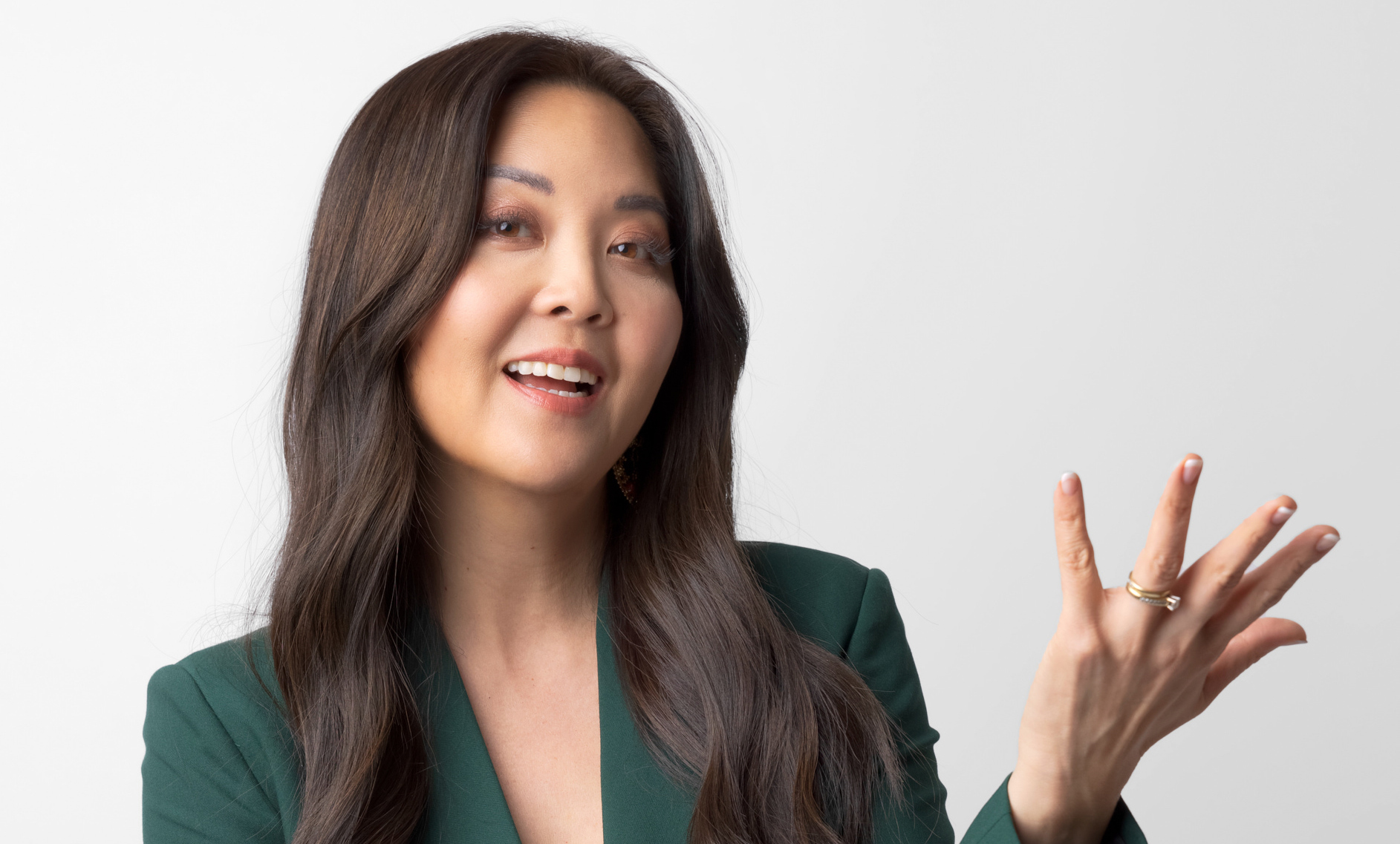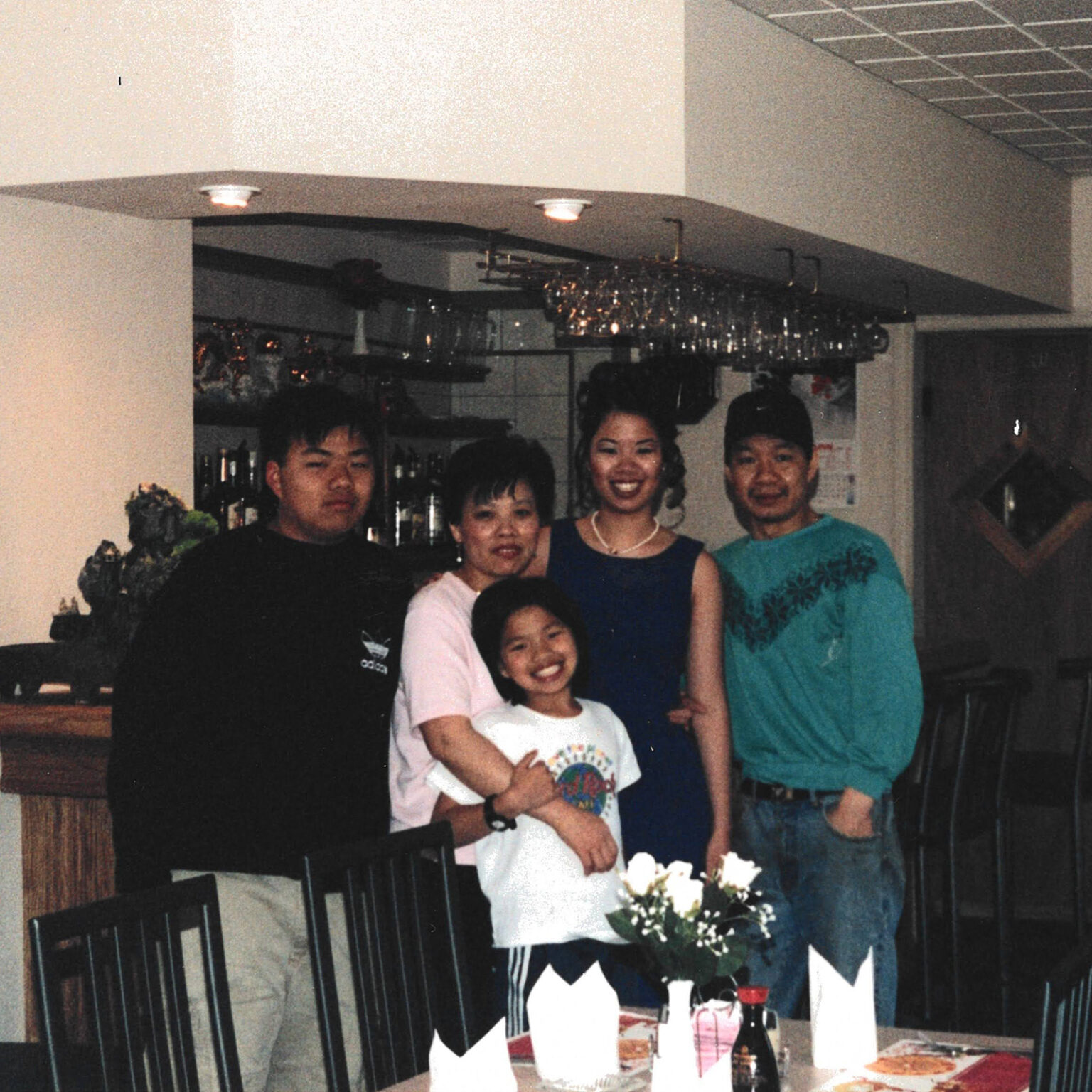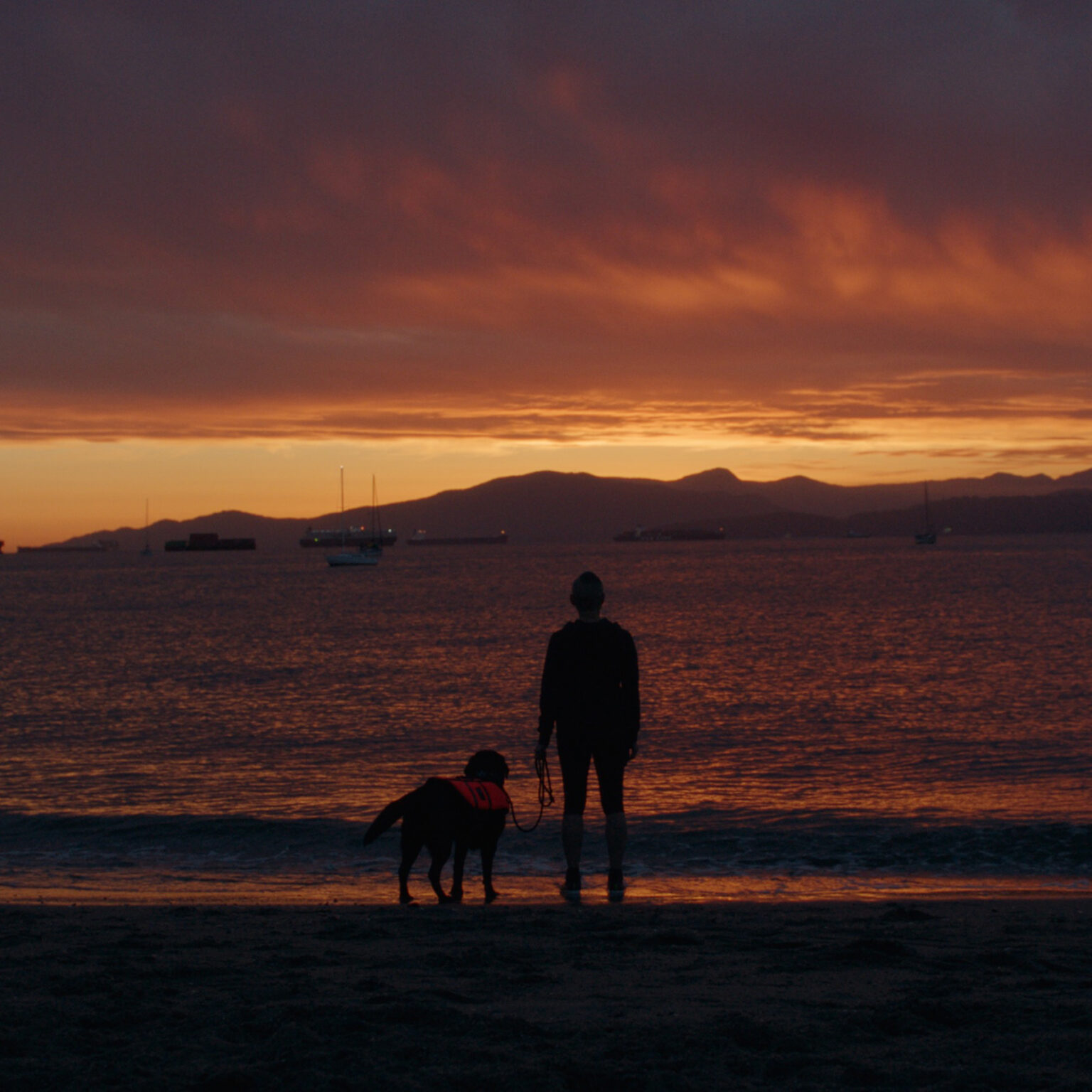If you’ve ever watched Julie Kim perform, you know how quietly radical her jokes are.
She tackles big topics like interracial relationships and medical paternalism, but her stories are so down to earth and relatable that she slips it right by you. It’s like tricking a baby to eat their vegetables. And her audiences eat it up.
For 10 years, Kim has been honing her stand-up chops and building an audience for herself. Now, this self-described mouthy, second-generation Korean Canadian with an attitude is making national waves in a big way.
Kim recently did a 40-stop North American tour with Ronny Chieng and is writing Simu Liu’s jokes for this year’s Juno Awards. She has also written for Kim’s Convenience.
Kim represents a new wave of comics. She says she’s not trying to send a message, but through speaking about her everyday experiences, she communicates truly subversive ideas: that Asian people are allowed to take up space. That women can choose what is best for their bodies. And, even just at the basic level, that Asian women can swear and be confident in themselves.
When we spoke, Kim was quite humble and took up a lot of our time together praising the people around her. She even specifically asked that I shout out Chieng’s executive producer by name. It’s Hannah Pham, by the way.
Despite the modesty, my impression of Kim is that she worked immensely hard to get to where she is. I got the feeling that her success was a foregone conclusion. She wouldn’t accept anything else.
In this interview with The RepresentASIAN Project, Kim tells us all about her journey in comedy, touring with Chieng, and her views about the trickle-down effect of good Asian representation.

On how she got into stand-up comedy
I actually only intended to do stand-up comedy once, as a dare to myself, because I wanted to do something that was very difficult. I also have always admired people who are really good public speakers. One thing I know is that in life, people who speak well are often given more respect. I wanted that benefit. And as a young woman in the workplace, you don’t get a lot of benefits. I wanted all the tools.
So that’s how I started. I took a stand-up class and I probably would have been voted least likely to succeed because I was doing a bunch of stuff. I was in grad school. I was working.
And then we had our first performance at a comedy club in Toronto. I remember just cold sweating the whole weekend, in anticipation of it. I did that set. It was good. And then I just kept doing it, and didn’t stop. There was never a point where I was like, ‘Do I keep going, do I stop?’ So here I am, over 10 years later.

On how she writes jokes
I am very much writing in my own voice. Especially since I had a kid about five years ago. I have less time for bullshit, honestly, and less and less filters and facades to keep up. That’s one of the things I really enjoyed about stand-up in the last five years is the ability to go out there and just be myself – talk about what’s really important to me, and what really happens in my life.
I am a giant feminist and when someone is being racist or misogynistic I call people out. But when I do stand-up, I don’t have a message in mind. I’m not like, “Oh, I have to project, this feminist view or this strong Asian view.” This literally is myself.
So my only objective that I’m conscious of when I do stand-up is that I want people to laugh. I want to have good jokes, I want to write good jokes, I want to deliver them well and I want people to laugh and appreciate what I did up there.
How touring with Ronny Chieng has brought her comedy game to the next level
It’s been the most amazing thing and has gotten me very, very comfortable with doing these giant theaters of 2,000 to 3,000 people, which is so different than a comedy club.
Of course, it was not always like that, although I had been starting to progress in my comedy career, in the last couple of years before the pandemic. That’s when I really started to headline my own shows and get a little bit of a following. This just kind of accelerated it.
We did 40 shows, across North America, mostly in the US and all these cities — a lot of which I had never been to before. And then that helped me to establish a fan base and contacts in all these different cities which will help me go back next time and do my own thing. And that’s really how it works in stand-up. It’s not about one big break, it’s a series of little breaks that you just have to keep building on.
“I am a giant feminist and when someone is being racist or misogynistic I call people out. But when I do stand-up, I don’t have a message in mind. I’m not like, ‘Oh, I have to project, this feminist view or this strong Asian view.’ This literally is myself.”
On writing Simu Liu’s jokes for the Juno Awards
It’s going to be so exciting. The Junos I think, for the first time, are being held outside. And it’s Asian Heritage Month! So there’s a lot to celebrate.
Simu’s going to be an amazing host. He’s totally in it with the preparation with us. It’s mainly an award show, right? So he’s playing such an important role as the host. I think he’s going to do a great job. He’s already so funny, and talented. And he’s a great writer, as I’m sure people will find out very soon, because he’s got a book out!
But he’s been so supportive of me and actually asked me to be a writer himself. He DM’ed me on Instagram and for a second, I was like, ‘Who’s trying to hack me?’ I was going to tell this person to back off.
On collaborating with the Asian creatives
It’s funny because in stand-up, there’s not a lot of collaboration overall. We are our own acts. It’s not acting, it’s not sketch or writing or anything like that.
I definitely feel support from other Asian producers and performers. And of course, I support them, too. But in the model of stand-up, collaboration isn’t a built in thing – but support certainly is.
I’ve really felt it in Vancouver. Vancouver has a great comedy scene that I would love to shout out. There’s a lot of talented emerging comedians, and a lot of talented emerging Asian comedians and show producers.
On obstacles in comedy
I completely acknowledge and feel that discrimination is real, for sure. But there are also obstacles for all women and Asian people in so many aspects of life, and the intersection of being female and Asian is this whole other level.
So having said that, I’m sure there has been discrimination against me. But I can’t say specifically, in my 10 plus years of stand-up, what the obstacles have been because I’m Asian, or because I’m female, or because I am both. I just know that it’s been difficult.
My style is not to focus on whatever the barriers are. It doesn’t matter, I just need to progress. My approach to comedy, especially in the last five years, has been to focus on what I can control, and to seek out and create opportunities for myself.
“My style is not to focus on whatever the barriers are. It doesn’t matter, I just need to progress. My approach to comedy, especially in the last five years, has been to focus on what I can control, and to seek out and create opportunities for myself.”
I would say half of the work in comedy for me has been making my own contacts, writing the emails, getting my US visa, following up with contacts, looking for gigs, setting up my own gigs, do you know what I mean?
On taking risks to build her career
I had a hard time, a few years ago, booking a headline spot at a Toronto comedy club. So then I produced my own shows at the Comedy Bar, sold out two shows, and without getting into detail, made more money in those two shows in one night than I would have made in three weekends of headlining a comedy club.
I had to pivot and take a risk, because that was the only way for me to headline a show. You have to be smart and strategize, do something else, have agency and work smart. And I have never had the excuse of being able to rely on the system or other people to make things happen for me.
“I’m not saying I’m doing God’s work. I’m certainly not, but I’m saying maybe these little things matter. I think through comedy, you share experiences. Comedy is so bonding and bridging in that way.”
On being a role model
It’s never occurred to me that anybody would look to me for that kind of stuff, because I’m just a person. I think the best I can do is be a good comedian.
I will share with you that, in the last couple of years, I’ve especially enjoyed feedback from Asian women who will send me a message after a show saying things like, ‘Thank you, my friend and I were there. Thank you so much for making this laugh. It’s been a hard year, we’ve been really sad and really needed that.’
That’s really touching for me.
On the benefits of good Asian representation
I did a show once and this guy – I think he looked like a biker, just a white guy with a motorcycle jacket and a motorcycle beside him, so that it’s pretty safe to assume he’s a biker – but he just said to me, ‘hey, you’re amazing. I’ve never seen an Asian woman swear that much.’
Now, as ridiculous as that sounds, there’s something nice in that, right? Because he had a certain perception, as flawed and stupid as it was, that Asian women didn’t swear, or maybe they only said nice things, or were timid or whatever. And I am not those things.
So now, he’s shifted his perception. And maybe that will matter someday for him, or someone close to him that he shares this with. There could be one less microaggression to an Asian female worker, or someone crossing the street out there.
I’m not saying I’m doing God’s work. I’m certainly not, but I’m saying maybe these little things matter. I think through comedy, you share experiences. Comedy is so bonding and bridging in that way.
I think it is really about taking up space and changing perceptions. I haven’t figured it all out. But I think positive representation of Asian people in the media or on the stage might have a trickle down effect.
On future projects
I’m doing some more writing! I’m talking to a number of shows because I am looking to branch out into writing more for TV and movies. I’ve done a little bit of on screen work, but I want to do a lot to entertain in a lot of ways and be creative in a lot of ways. So I’ve got some stuff cooking up. I will be headlining shows in Vancouver, Ottawa, Toronto, and Calgary and some more in the US.
This interview has been edited for length and clarity.
Like this post? Follow The RepresentASIAN Project on Instagram, TikTok and YouTube to keep updated on the latest content.











